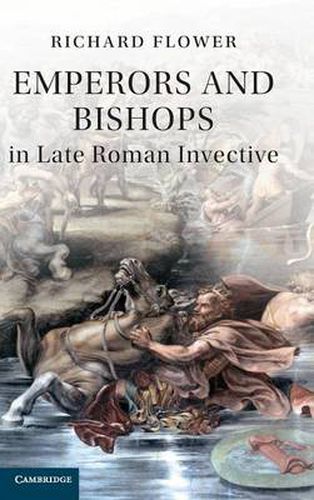Readings Newsletter
Become a Readings Member to make your shopping experience even easier.
Sign in or sign up for free!
You’re not far away from qualifying for FREE standard shipping within Australia
You’ve qualified for FREE standard shipping within Australia
The cart is loading…






This innovative study illuminates the role of polemical literature in the political life of the Roman empire by examining the earliest surviving invectives directed against a living emperor. Written by three bishops (Athanasius of Alexandria, Hilary of Poitiers, Lucifer of Cagliari), these texts attacked Constantius II (337-61) for his vicious and tyrannical behaviour, as well as his heretical religious beliefs. This book explores the strategies employed by these authors to present themselves as fearless champions of liberty and guardians of faith, as they sought to bolster their authority at a time when they were out of step with the prevailing imperial view of Christian orthodoxy. Furthermore, by analysing this unique collection of writings alongside late antique panegyrics and ceremonial, it also rehabilitates anti-imperial polemic as a serious political activity and explores the ways in which it functioned within the complex web of presentations and perceptions that underpinned late Roman power relationships.
$9.00 standard shipping within Australia
FREE standard shipping within Australia for orders over $100.00
Express & International shipping calculated at checkout
This innovative study illuminates the role of polemical literature in the political life of the Roman empire by examining the earliest surviving invectives directed against a living emperor. Written by three bishops (Athanasius of Alexandria, Hilary of Poitiers, Lucifer of Cagliari), these texts attacked Constantius II (337-61) for his vicious and tyrannical behaviour, as well as his heretical religious beliefs. This book explores the strategies employed by these authors to present themselves as fearless champions of liberty and guardians of faith, as they sought to bolster their authority at a time when they were out of step with the prevailing imperial view of Christian orthodoxy. Furthermore, by analysing this unique collection of writings alongside late antique panegyrics and ceremonial, it also rehabilitates anti-imperial polemic as a serious political activity and explores the ways in which it functioned within the complex web of presentations and perceptions that underpinned late Roman power relationships.